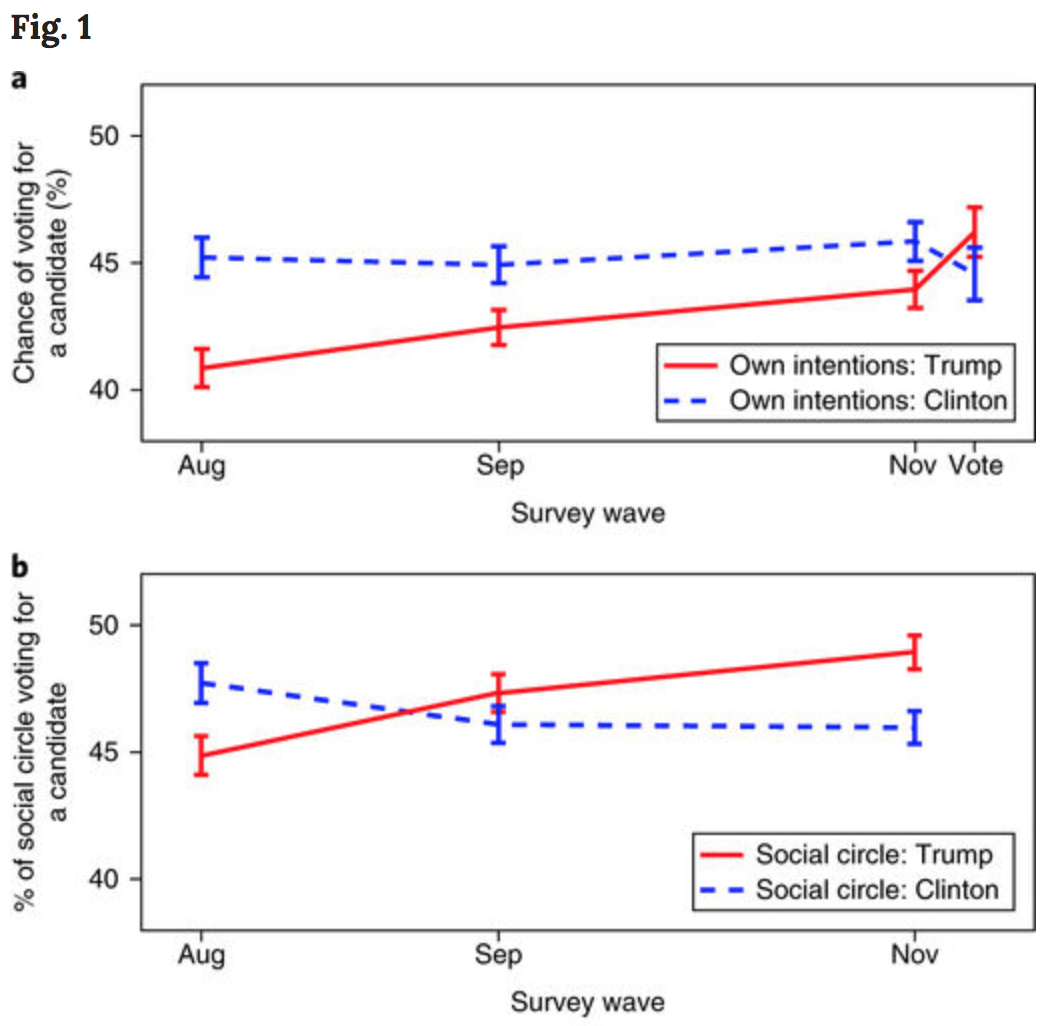Pollsters have taken a beating the last few years. Getting Brexit and the 2016 U.S. presidential election wrong were spectacular failures that shook the public's faith in prediction models.
The media is largely to blame. People like Nate Silver are often portrayed as oracles and polls as divinely inspired. Anyone who questions their accuracy is attacked for rejecting science. But polls aren't science. Instead, they are some combination of fancy math (statistics) and art. If the underlying assumptions are wrong, or if the sampling methods are biased, then polls will be inaccurate.
Like a pastry chef tweaking a cake recipe, pollsters are constantly looking for ways to make their polling better. Now, an international team of researchers has found that election polls could be made more accurate by asking one more question: "Who will your friends vote for?"
The researchers conducted their polling in collaboration with GfK and USC prior to the 2016 U.S. and 2017 French presidential elections. The results for the U.S. election were particularly interesting: Asking participants for whom they believe their friends will vote ("social circle") yielded a more accurate prediction of the Electoral College outcome than asking the participant for whom he/she planned to vote ("own intention"):

As shown, in the real-world, Hillary Clinton was awarded 232 electoral votes1. The GfK and USC polls, when based on a participant's "own intention," predicted that Clinton would win 298 and 305 electoral votes, respectively. However, when the polls used "social circle" questions (i.e., the voting intentions of a person's friends), they were more accurate. Notably, using this polling question, the USC poll actually predicted that Clinton would lose the election with 258 electoral votes2.
 Intriguingly, the social circle question was better able to detect last-minute shifts in voter intention in favor of Trump. If a participant said that his friends were increasingly likely to vote for Trump, this research suggests that the participant also became more likely to vote for Trump, even if he said he planned to vote for Clinton.
Intriguingly, the social circle question was better able to detect last-minute shifts in voter intention in favor of Trump. If a participant said that his friends were increasingly likely to vote for Trump, this research suggests that the participant also became more likely to vote for Trump, even if he said he planned to vote for Clinton.
To be sure, the social circle question is not perfect. For instance, it performed worse than the standard question at predicting the difference in the popular vote percentage between Trump and Clinton.
Still, this is a very valuable insight. People are sometimes hesitant to tell pollsters their true intentions, but it appears they are not so shy about admitting to their friends' intentions. Perhaps that may come in useful for election polls in 2018 and 2020.
Notes
(1) Clinton only ended up with 227 electoral votes due to five faithless electors.
(2) 270 electoral votes are required to win a U.S. presidential election.
Source: M. Galesic, W. Bruine de Bruin, M. Dumas, A. Kapteyn, J. E. Darling, and E. Meijer. "Asking about social circles improves election predictions." Nature Human Behaviour 2: 187-193. Published online: 26-Feb-2018. doi: 10.1038/s41562-018-0302-y




